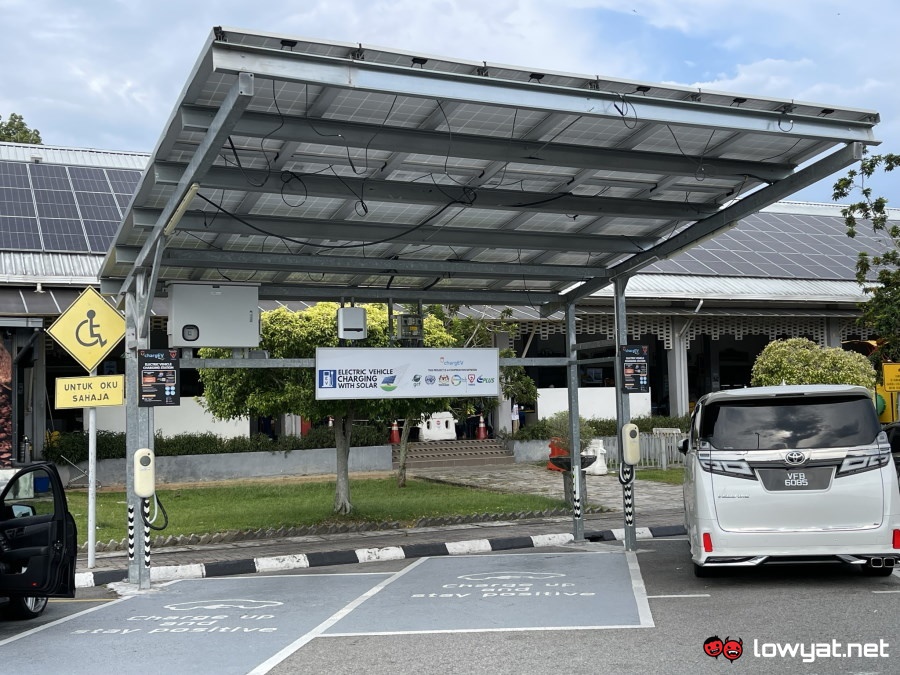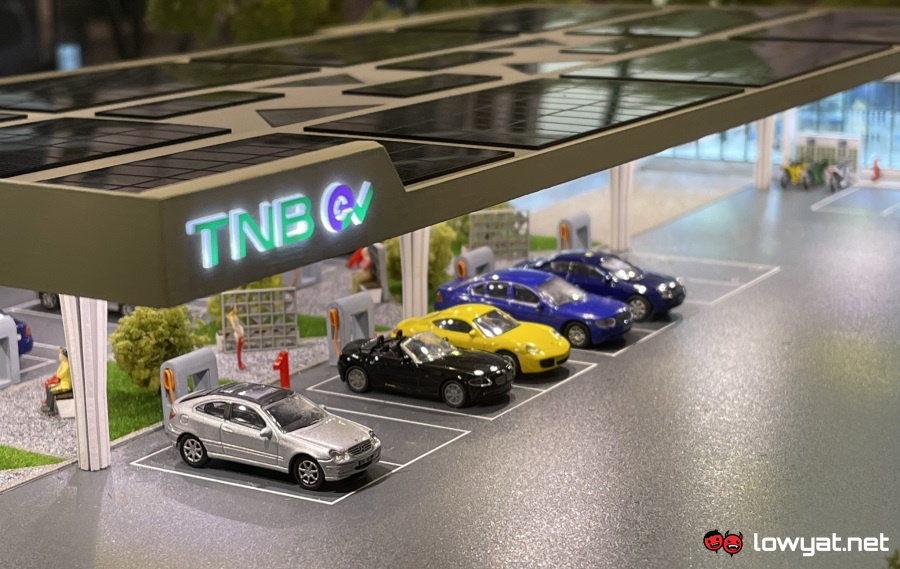Notably, this announcement is just a deeper dive into the green collaboration between the two companies, which was announced back in March [pdf]. TNB and PLUS have a long-term agreement to reduce carbon emissions by providing EV charging stations along the latter’s highways. Just as previously revealed, the two firms will be installing charging stations as well as energy efficiency monitoring and solar photovoltaic systems at selected rest and relaxation (R&R) areas along the PLUS highway network. This will include the Ayer Keroh R&R building (northbound) and Tapah R&R (northbound) with a total capacity of over 360 kWp. TNB’s President Baharin Din said that the EV market has the potential for 3,300 charging points for 33,350 EVs by 2025 with an annual electricity revenue of RM80 million, which is set to increase to 18,000 charging points and an annual electricity revenue of RM1.25 billion by 2030. Baharin, who is also the CEO, expects there to be half a million EVs on the road with 2.3 TWh of electricity charging requirements by 2030, which would reduce 4.4 million tonnes of CO2 emissions. Aside from highways, TNB also has broader plans to develop general EV charging hubs, similar to petrol stations, around the country under its subsidiary, Tenaga Switchgear. The company has said that it will start operating its first charging hub in Bangsar by 2023. TNB isn’t the only one working on an EV infrastructure, as Porsche and Shell will also be setting up charging points at select Shell stations along the same North-South Expressway. Petronas, Mercedes-Benz, and JomCharge have a similar plan as well and have recently activated their first-ever Energise DC fast charger in Gambang. Not to forget, the Prime Minister has proposed that the utility company work together with local car firm Perodua to produce EVs and develop the charging infrastructure. (Source: Bernama.)

